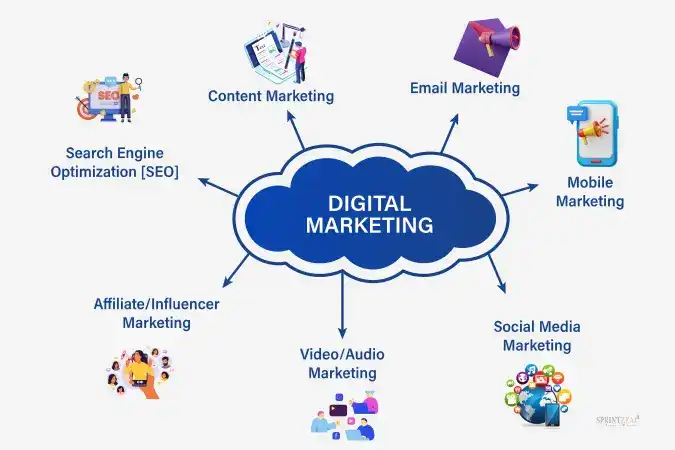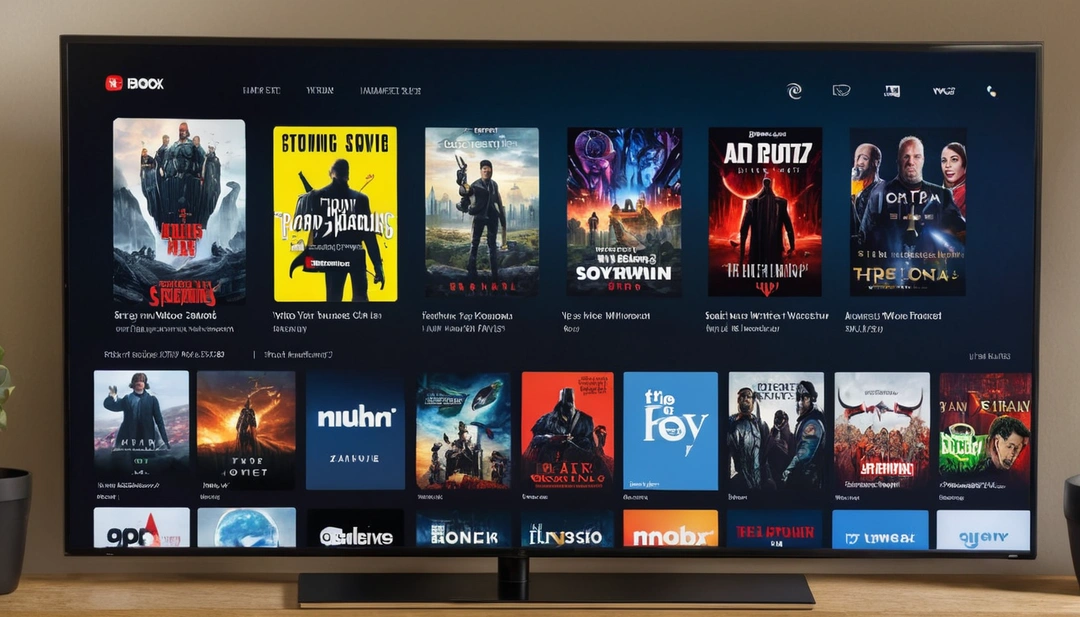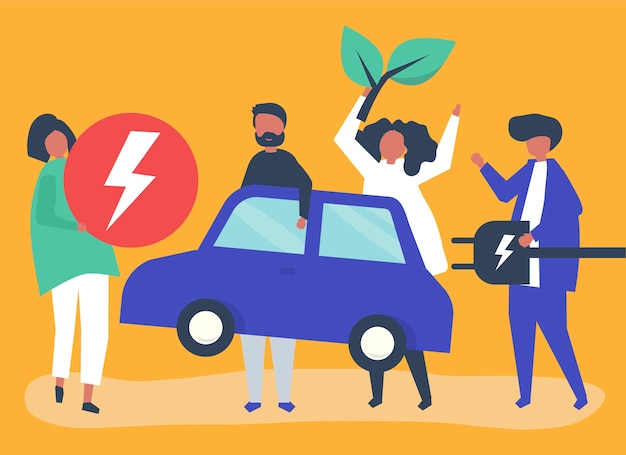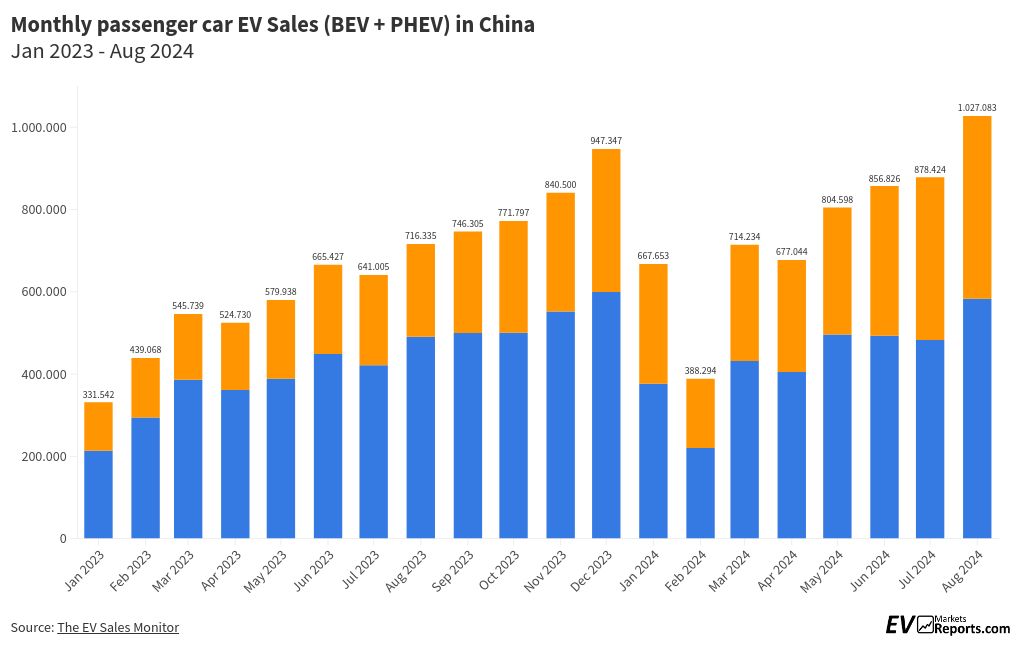Rural vs. Urban EV Growth: Analyzing Key Differences
Mia Anderson

Photo: Rural vs. Urban EV Growth: Analyzing Key Differences
The global transition to electric vehicles (EVs) is accelerating, marking a significant shift in how people think about transportation and energy sustainability. However, the adoption of EVs is not uniform across geographies. There is a striking contrast between rural and urban areas in terms of EV growth, influenced by infrastructure, consumer preferences, and economic factors. This article delves into these key differences, offering insights into what drives EV adoption in each setting.
Introduction: The Growing Electric Revolution
Electric vehicles have gained substantial traction as governments, businesses, and consumers embrace sustainable transportation. According to a report by the International Energy Agency (IEA), EV sales surged by over 50% globally in 2022, with urban areas leading the charge. However, the adoption curve in rural areas remains slower, creating a dichotomy worth exploring. Understanding these regional disparities is critical for policymakers, manufacturers, and stakeholders aiming to foster EV growth.
Urban EV Growth: The Driving Factors
Urban areas have been the epicenter of EV adoption, thanks to their unique set of advantages.
1. Dense Charging Infrastructure
Cities often boast dense and well-developed EV charging networks. For instance, metropolitan areas like San Francisco or Oslo have thousands of public chargers, reducing range anxiety a common barrier to EV ownership. Programs such as Tesla’s Supercharger network and government incentives have prioritized urban hubs, making EVs a practical choice for city dwellers.
2. Consumer Demand and Lifestyle
Urban residents tend to prioritize environmental consciousness and technological advancements. With shorter commutes and higher disposable incomes, they are more likely to invest in EVs as a sustainable alternative to traditional vehicles.
3. Government Incentives
City governments are leading green initiatives, offering tax breaks, subsidies, and reduced registration fees for EV buyers. Additionally, many urban areas have implemented low-emission zones, restricting gasoline-powered vehicles, further nudging consumers toward EV adoption.
Rural EV Growth: Challenges and Opportunities
In contrast, rural regions face unique challenges that hinder the growth of EVs but also present untapped opportunities.
1. Sparse Charging Infrastructure
Unlike cities, rural areas often lack a robust charging network. Many potential buyers are deterred by the fear of running out of charge in remote locations, where public chargers are few and far between. According to the U.S. Department of Energy, over 80% of rural counties have fewer than five public charging stations.
2. Economic Barriers
Rural households typically have lower median incomes than their urban counterparts. Coupled with the higher upfront cost of EVs, this economic disparity limits adoption. While EV prices have been declining, they remain unaffordable for many in rural communities, where second-hand gasoline vehicles are a more economical choice.
3. Vehicle Usage Patterns
Rural drivers tend to cover longer distances and use vehicles for tasks such as farming or towing, which demand reliability and endurance. Although advancements in EV battery technology have improved range, these vehicles may still fall short of the rigorous demands of rural lifestyles.
Comparing Infrastructure: A Critical Analysis
Infrastructure plays a pivotal role in shaping EV adoption rates, and the disparities between rural and urban areas highlight the need for targeted strategies.
Urban Advantage: High Accessibility
Urban areas enjoy an interconnected web of private and public charging stations. Additionally, workplaces and residential complexes increasingly offer charging options, simplifying the logistics of owning an EV. Cities also benefit from high-speed chargers, which can replenish a vehicle’s battery in under an hour.
Rural Deficit: Bridging the Gap
For rural areas to catch up, governments and private entities must collaborate to build a comprehensive charging network. Initiatives such as the U.S. Bipartisan Infrastructure Law, which allocates $7.5 billion to EV infrastructure, aim to address this gap. However, deployment in rural regions remains slow due to logistical and financial challenges.
The Role of Policy and Incentives
Policy plays a central role in addressing the rural-urban divide in EV growth. While urban areas benefit from focused incentives, rural regions require tailored solutions to overcome their unique barriers.
Effective Urban Policies
Cities like London and Los Angeles offer significant incentives, including free parking, toll exemptions, and access to carpool lanes for EV owners. These perks, combined with strict emissions regulations, create a conducive environment for EV adoption.
Bridging the Rural Gap
For rural areas, subsidies on EV purchases and investments in community-based charging hubs could be game-changers. Policymakers must also address misconceptions about EV reliability and educate rural populations about long-term cost savings.
Future Trends: What Lies Ahead?
As EV technology continues to evolve, the gap between rural and urban adoption may narrow. Key trends that could shape the future include:
- Affordable EV Models: Automakers are introducing budget-friendly EVs, such as the Chevrolet Bolt and Nissan Leaf, making them more accessible to rural buyers.
- Battery Innovation: Advancements in solid-state batteries promise longer ranges and faster charging, addressing critical concerns for rural users.
- Renewable Energy Integration: Rural areas with access to renewable energy sources, like solar farms, could benefit from localized charging solutions, reducing dependency on centralized infrastructure.
Conclusion: Toward Inclusive EV Growth
The differences in EV growth between rural and urban areas underscore the importance of tailored strategies. While urban areas lead the charge, rural regions hold immense potential for expansion. By addressing infrastructure gaps, economic barriers, and consumer concerns, stakeholders can ensure that the EV revolution benefits all communities, regardless of geography.
Electric vehicles represent more than just a technological shift they symbolize a sustainable future. Bridging the rural-urban divide is not just a logistical challenge but an opportunity to create a more equitable transportation landscape. The path forward requires collaboration, innovation, and a shared commitment to a greener world.
Marketing
View All
January 21, 2025
Why Digital Marketing is Vital for SMBsDiscover why small businesses must adopt digital marketing in 2024. Learn tips and tactics to compete in the digital age. Take your business online today!
Mia Anderson

January 19, 2025
How to Master Digital Marketing BasicsLearn the essentials of digital marketing in this beginner-friendly guide. Kickstart your journey with step-by-step strategies. Start mastering today!
Mia Anderson

January 27, 2025
PPC vs SEO: Digital Marketing ShowdownDiscover the differences between PPC and SEO in digital marketing. Find out which strategy is right for your goals and budget. Make an informed choice today!
Mia Anderson
Entertainment
View AllDiscover the best streaming services of 2024 with our in-depth reviews. Find out which platforms offer the best value and why you should choose them. Read now!
Mia Anderson
Explore the latest trends in virtual reality gaming for 2024. Our in-depth guide covers new technology and gameplay innovations. Discover more now!
Mia Anderson
Discover the top 10 TV series that everyone is talking about. Dive into binge-worthy shows that will keep you hooked click to start your next TV obsession!
Mia Anderson
Explore the latest trends in fan fiction for 2024. Learn what fan fiction is, its impact on media, and why it’s a thriving creative outlet. Read now!
Mia Anderson
Automotive
View AllWhat are the unique challenges to EV adoption in Latin America? Discover the barriers and potential solutions for growth.
Read MoreDiscover trends driving EV range improvements. Learn how automakers are tackling range anxiety with groundbreaking solutions.
Read MoreDiscover the latest trends in electric vehicle adoption in China. What factors are driving this rapid growth?
Read MorePolular🔥
View All
1
2
3
4
5
6
7
8
9
10
Technology
View All
December 5, 2024
How to Save Big on High-End Tech Products: 6 Hacks You Need to Try
Unlock massive savings on high-end tech! Discover 6 insider hacks to get the best deals. Click to learn more and start saving today.

December 18, 2024
How to Get the Best Deals on Smartphones This Month
Discover the hottest smartphone deals this month! Click to learn insider tips and save big on your next purchase.

August 9, 2024
The Evolution of Mobile Technology: A Journey to Super Connectivity
Learn about the amazing evolution of mobile technology from 1G to 5G and beyond! Discover the inventions that impacted our world and altered communication. Discover the future with quantum & 6G technology!






















